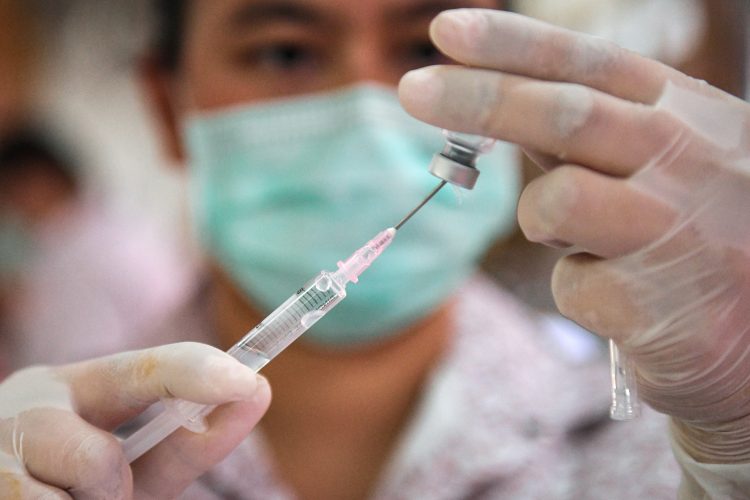
There appear to be similarities between the rare blood clotting events possibly associated with Johnson & Johnson’s coronavirus vaccine and the AstraZeneca coronavirus vaccine, Dr. Peter Marks, director of the US Food and Drug Administration's Center for Biologics Evaluation and Research, said during a virtual briefing on Tuesday.
“It's plainly obvious to us already that what we're seeing with the Janssen vaccines looks very similar to what was being seen with the AstraZeneca vaccine,” Marks said. Janssen is the vaccine arm of Johnson & Johnson.
The European Medicines Agency recently concluded that unusual blood clots with low blood platelets should be listed as “very rare side effects” of the AstraZeneca vaccine. The AstraZeneca vaccine isn't in use in the United States but has been authorized in other countries.
“The AstraZeneca is a chimpanzee adenoviral vector vaccine. The Janssen is a human adenoviral vector vaccine,” Marks said. “We can't make some broad statement yet, but obviously they are from the same general class of viral vectors.”
The mechanism behind the blood clotting events among those who have received the Johnson & Johnson vaccine remains unknown – but may be similar to the mechanism behind possible events connected to the AstraZeneca vaccine, Marks said.
“We don't have a definitive cause, but the probable cause that we believe may be involved here – that we can speculate – is a similar mechanism that may be going on with the other adenoviral vector vaccine,” Marks said. “That is that this is an immune response that occurs very, very rarely after some people receive the vaccine and that immune response leads to activation of the platelets and these extremely rare blood clots.”





Kakvo je tvoje mišljenje o ovome?
Budi prvi koji će ostaviti komentar!